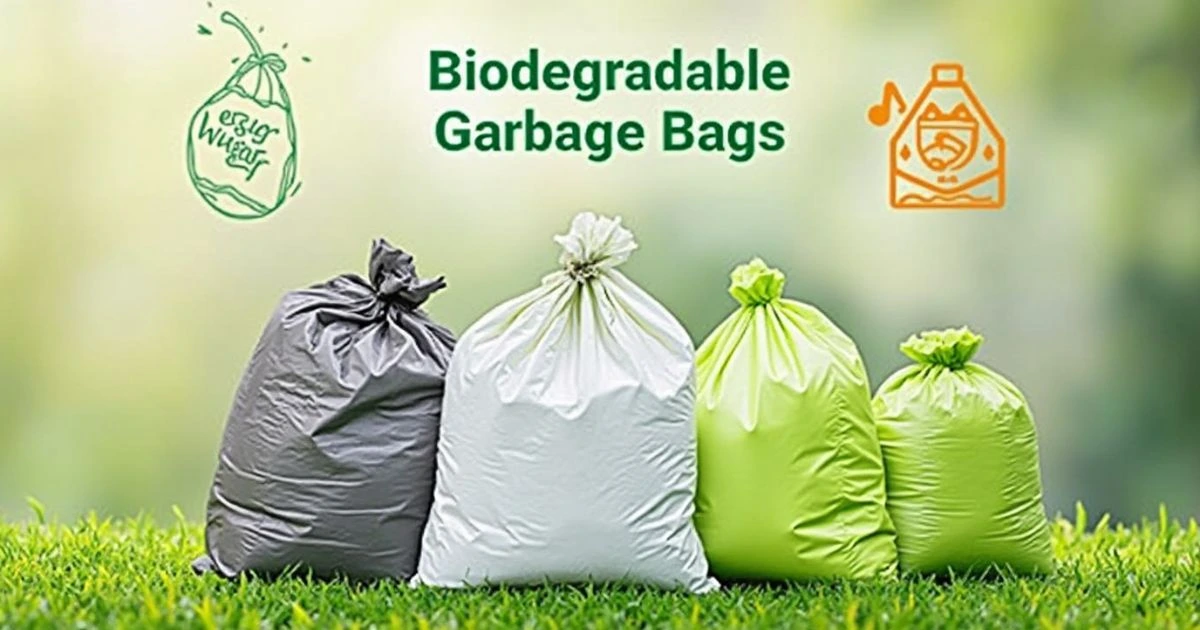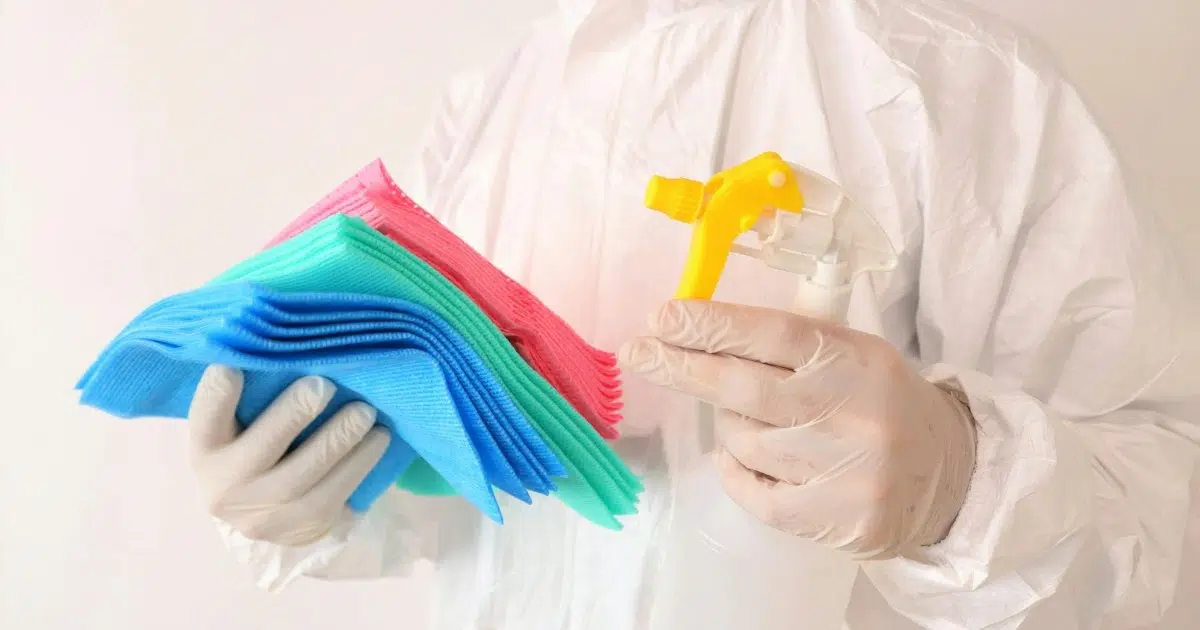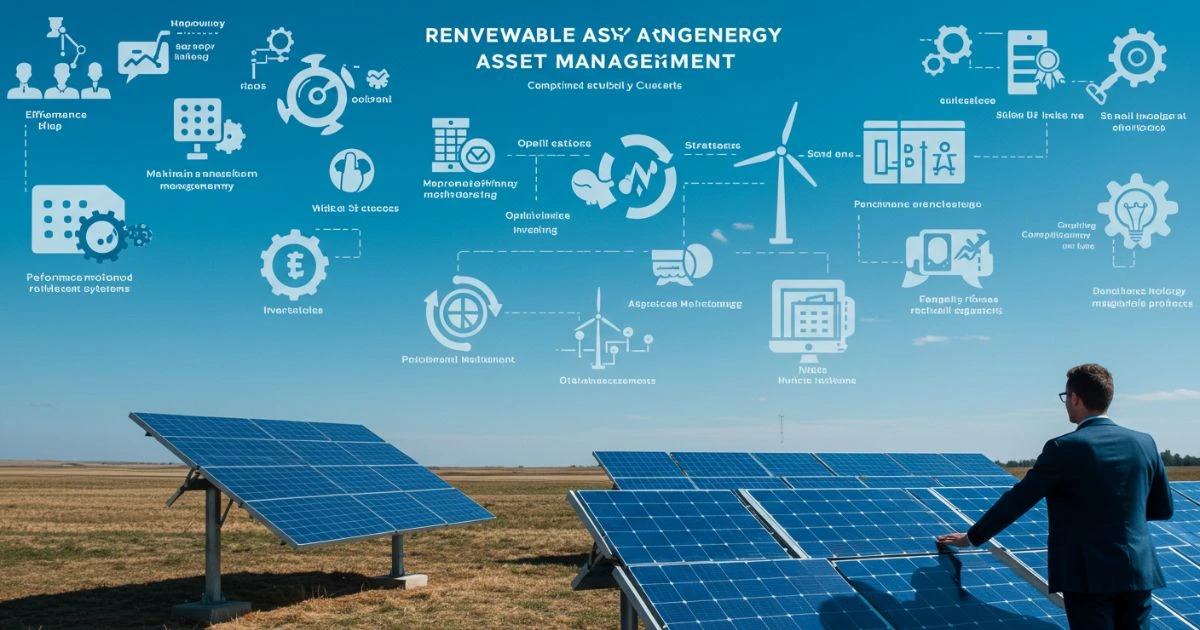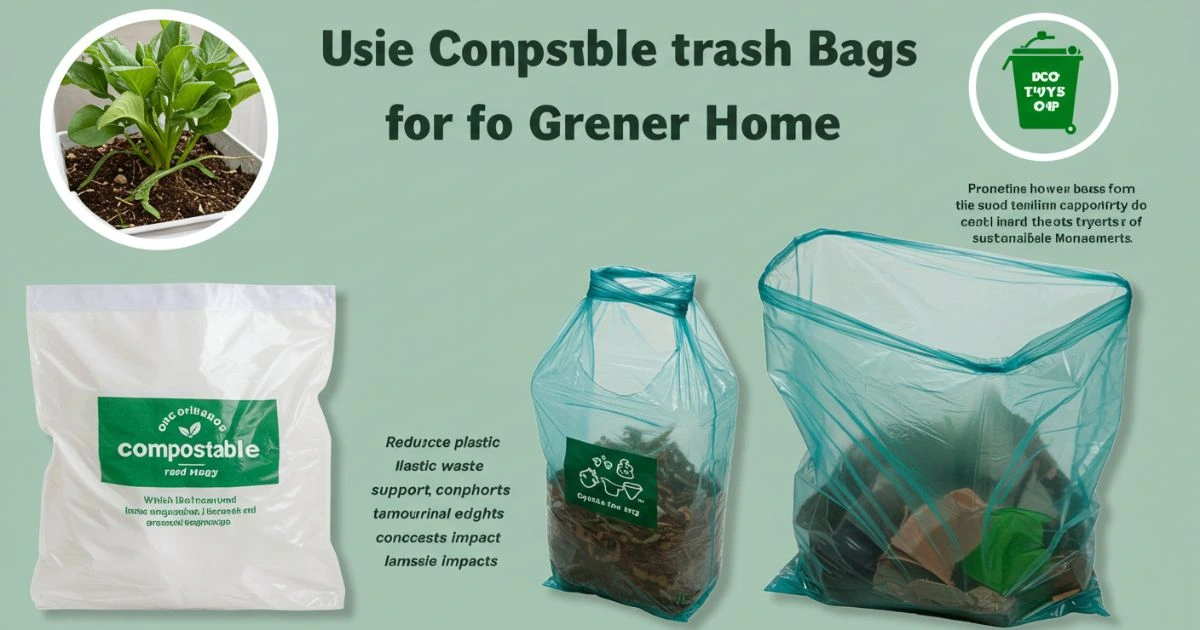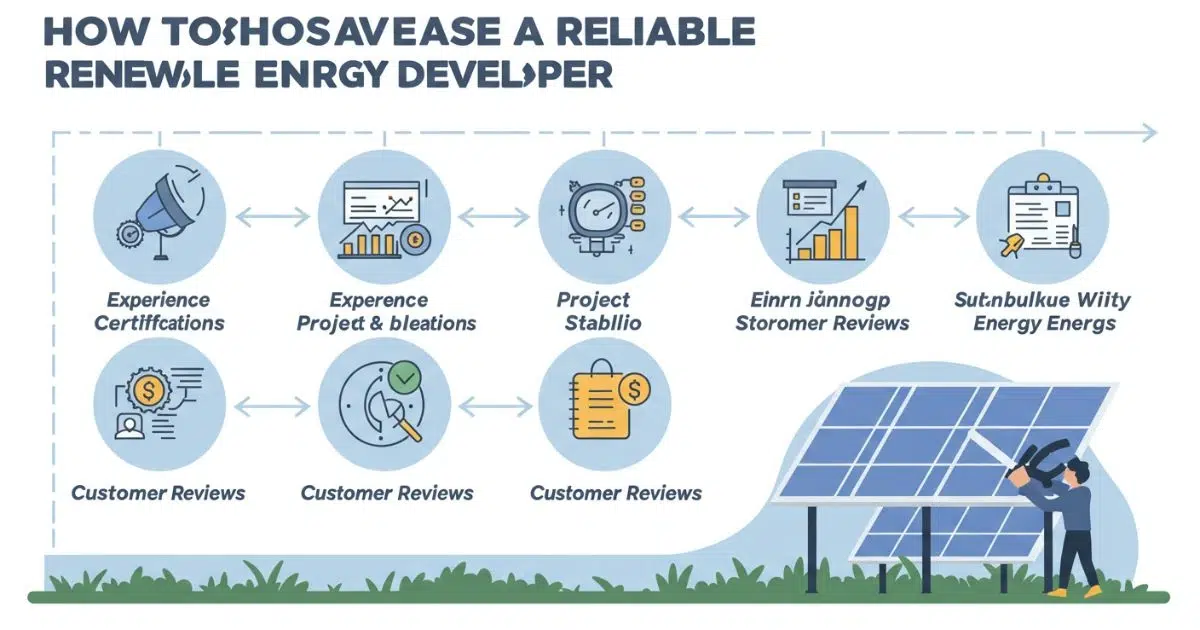What are biodegradable garbage bags and how do they work?
Biodegradable garbage bags are a green choice compared to regular plastic bags. They’re made from plant-based materials like cornstarch. These bags break down naturally over time, unlike plastic bags that take centuries to decompose.
Using these bags helps reduce landfill waste and protects the environment. They’re made to decompose into water, carbon dioxide, and organic matter without harming the planet. This section highlights the importance of choosing eco-friendly options to fight plastic pollution.
Next, we’ll dive into the materials and certifications that make these bags truly biodegradable. We’ll also share tips on how to pick the best ones for your needs.
Key Takeaways
- Biodegradable garbage bags use plant-based materials to break down faster than plastic.
- They help reduce the 38 million tons of plastic waste generated annually in the U.S.
- Decomposition occurs through natural processes like microbial activity or sunlight exposure.
- They’re part of a shift toward sustainable waste management in households.
- Certifications like BPI or TÜV Austria verify true biodegradability claims.
Understanding Biodegradable Garbage Bags
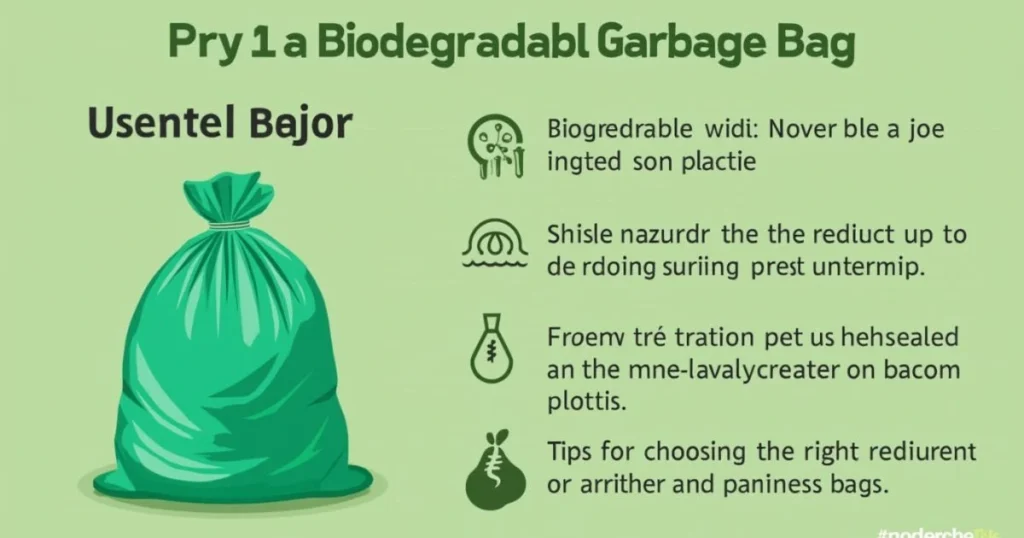
Biodegradable dustbin bags are a green choice compared to regular plastic. They naturally break down, which is better for the environment. Here’s what you need to know about their design, types, and how to use them.
What Makes a Garbage Bag Biodegradable?
These bags are made from plant-based materials like cornstarch or sugarcane. They don’t last as long as plastic, which is good for the planet. Look for OK Compost or TÜV to make sure they meet standards.
Different Types of Eco-Friendly Bags
- Plant-based plastics: Made from renewable resources like cassava or potato starch.
- Recycled-content bags: Created from materials that have already been used, helping reduce waste.
- Microwave-safe options: Brands like EcoSafe or BioBag offer bags safe for food waste.
Biodegradable vs. Compostable: Important Distinctions
Biodegradable bags break down in most places over months. Compostable bags need special facilities to decompose. Always check labels: compostable bags need special disposal, while biodegradable can usually go in regular trash. Using them wrong can mess up recycling, so pick based on local rules.
The Science Behind Biodegradation
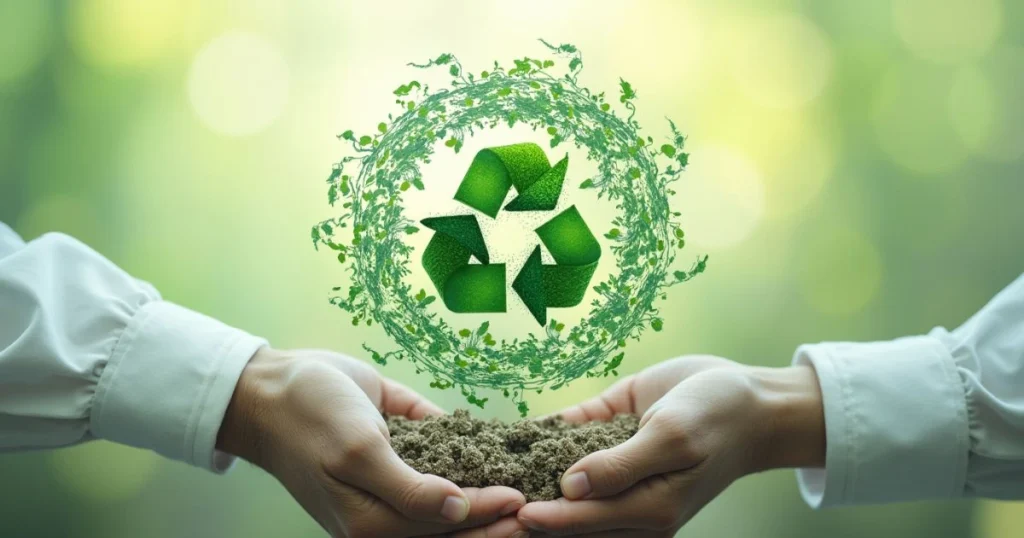
Compostable trash bags break down naturally. Microorganisms like bacteria and fungi use enzymes to turn them into water, carbon dioxide, and organic matter. This process needs the right conditions to work well.
Here’s what makes the science tick:
- Temperature: Warmth (50–60°C/122–140°F) speeds up microbial activity. Home compost piles or industrial facilities offer the perfect heat.
- Moisture: Wet conditions help microbes thrive. Too dry? The process slows. Too wet? Oxygen levels drop, hindering breakdown.
- Oxygen: Air circulation is key. Without it, materials might rot instead of composting cleanly.
Time is also important. While conventional plastic lasts centuries, compostable trash bags decompose in weeks to months. The thickness and material of the bag affect this time frame. For example, plant-based polymers like PLA (polylactic acid) degrade faster than heavier-duty options.
Manufacturers have to find a balance. They need to make compostable trash bags strong enough for daily use but weak enough for microbes to break them down. Innovations like starch-based additives or cornstarch blends help bags hold waste while ensuring they break down eventually. Lab tests simulate composting environments to ensure bags meet standards like ASTM D6400, which confirms full biodegradation within 180 days.
Understanding this science helps you choose bags that work with nature—not against it. The next section explores how these choices cut pollution and shrink your carbon footprint.
Environmental Benefits of Using Green Trash Bags
Switching to green trash bags can really help the planet. These bags solve big environmental problems and fit into our daily waste routines. Here’s how they help:
Reduction in Plastic Pollution
Regular plastic bags take ages to break down, filling up landfills and harming nature. Green trash bags, made from things like cornstarch, decompose in just weeks. This stops harmful microplastics from getting into our oceans and hurting sea creatures. It’s known that plastic kills over 100,000 marine animals every year. Using green bags can cut down on this harm.
Lower Carbon Footprint
Making regular plastic bags uses fossil fuels, which pollutes the air. Green trash bags are better because they:
- Need less energy to make
- Don’t require oil to produce
- Don’t release methane when they break down
Supporting Sustainable Materials
Choosing green trash bags helps new ideas grow. Companies like BioBag and EcoSafe work on making bags that are strong and can compost. Buying certified products (look for BPI or TÜV labels) helps them make more eco-friendly bags. As more people buy them, prices go down, making it easier for everyone to be green.
How to Select the Right Biodegradable Garbage Bags for Your Home
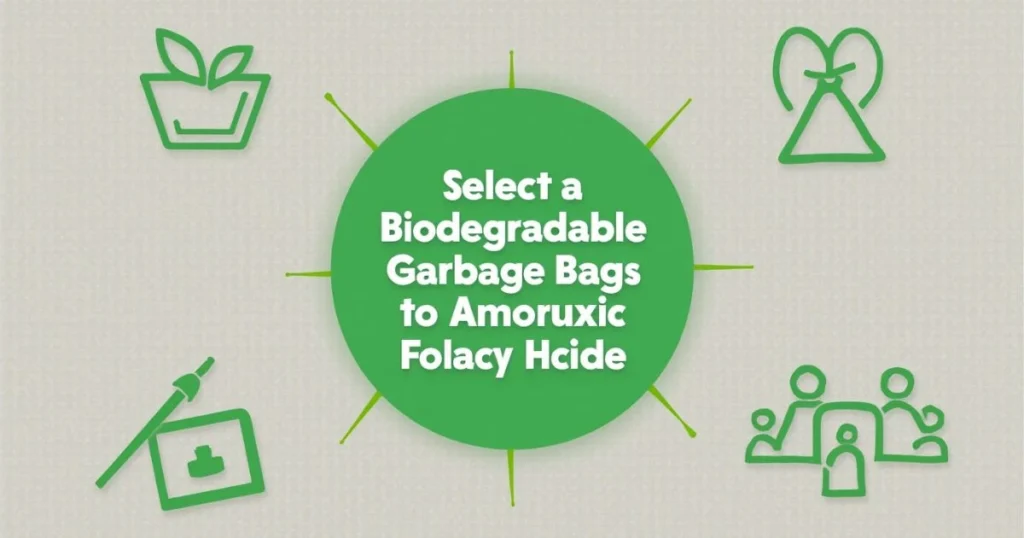
Choosing the right compostable garbage bags is about matching their features to your needs. Here’s how to pick the best ones:
Size and Strength Considerations
Make sure the bags fit your trash can size. For example, 13-gallon kitchen liners need to be strong for wet or sharp waste. Look at the thickness in microns—higher means they’re stronger.
Drawstring ties or reinforced seams can make handling heavy loads easier.
Certification Labels to Look For
Check for certifications like ASTM D6400 or BPI Certified. These show the bags meet composting standards. Don’t trust “eco-friendly” labels without a clear certification.
Look for labels that say “home compostable” for backyard use.
Price Comparison with Conventional Bags
- Compostable garbage bags are 15-30% more expensive per roll than plastic ones.
- Buying in bulk can lower costs—try brands like EcoSafe or BioBag.
- Long-term, you save money by avoiding landfill fees for recyclable/compostable waste.
Best Places to Purchase in the US
Big stores like Amazon, Walmart, and Target sell top brands. Specialty stores like EarthHero or Packard’s Compost Supply have great selections. Local zero-waste shops offer bulk discounts.
Common Myths About Compostable Garbage Bags
It’s important to know the truth when picking biodegradable garbage bags or compostable trash bags. False information can cause harm to the environment. Let’s clear up some common myths:
- Myth 1: All biodegradable bags work in home compost bins. Not every compostable trash bag works in home compost bins. Look for bags with ASTM D6400 certification. These need industrial composting facilities to fully break down.
- Myth 2: They vanish in landfills naturally. Landfills don’t have enough oxygen or heat for bags to break down quickly. Even biodegradable garbage bags can take decades. It’s important to dispose of them correctly.
- Myth 3: “Biodegradable” guarantees eco-friendliness. Without proper disposal, these bags can stay in nature for a long time. Always check the disposal guidelines for your area.
Many think compostable trash bags are good for all situations. But, the truth is different. You need to pay attention to certifications and local recycling programs. Not knowing these can lead to pollution or littering. Make sure your local area has composting services before buying.
Knowing these facts helps you make better choices. Look for brands like BioBag or EcoSafe. They clearly state what’s needed for their bags to break down. Taking these small steps can make a big difference for the environment.
Conclusion: Making the Switch to Biodegradable Dustbin Bags
Choosing biodegradable dustbin bags is an easy way to cut down on plastic waste. These bags break down naturally, unlike regular plastic bags. This reduces long-term harm to the environment.
Start by picking certified green trash bags. Look for labels like BPI or TUV Austria. Brands like BioBag and EcoSafe offer strong bags for everyday use. Make sure to dispose of them properly.
Begin by switching one room at a time. Then, expand your change over weeks. Choose bags made from plant-based materials for faster decomposition.
Over time, this change will lower your household’s carbon footprint. It will also help you reach your sustainable goals. New materials like mushroom-based packaging or algae plastics are on the horizon.
By choosing biodegradable dustbin bags, you’re part of a bigger movement. Small changes, like using green trash bags, can make a big difference. Keep learning about new materials and ways to dispose of them. Every small step helps make our planet healthier for future generations.
FAQ
There are no reviews yet. Be the first one to write one.

